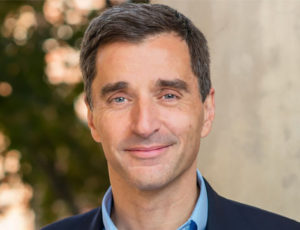 It’s not an easy time to be a preacher.
It’s not an easy time to be a preacher.
To stand in the pulpit in these politically charged times, to say anything rather than nothing, opens the preacher to the criticism of either being “too political” or “not political enough.”
I’ve heard both.
I want to make my political agenda perfectly clear. I don’t want anyone to have to guess at what I’m “up to” in the pulpit or try to decode the “secret” messages in my sermons.
Here’s my political agenda: people.
It begins with the conviction that every person is made in the image of God (Genesis 1:27). Sometimes that conviction is tested. I went for a jog when I was in Washington, D.C., for a preaching conference a few months ago and saw a man sleeping in a doorway on 14th Street. He was turned away from me. I couldn’t see his face. But I could see that he had wet himself during the night, and the empty bottle beside him suggested he may have been too drunk at the time to know or care. And yet, there was the image of God lying in that doorway.
“Every person is made in God’s image. In God’s eyes no one is more important than anyone else.”
It’s not only homeless drunks who bear God’s image: it’s everybody. It’s wealthy white businessmen reading the Wall Street Journal and poor Hispanic women bringing them coffee. It’s the man who collects your garbage on Monday morning and the woman walking her freshly groomed poodle in the same alley. It’s the Muslim accountant who works down the hall and the transgender kid waiting for the school bus. Every one of them is made in God’s image.
If you look for it, you can see it.
My political agenda continues with the conviction that we, as a society, have a responsibility for those people. That’s what “You shall love your neighbor as yourself” means (Matthew 22:39). I’m not sure what the most loving thing we could do for that man sleeping in the doorway might be, but I think we need to be asking that question. I think our politicians need to be asking that question.
In the Gospel of Luke, the preaching of John the Baptist begins with a quote from Isaiah: “Every valley shall be exalted, and every mountain and hill made low” (Isaiah 40:4). It’s the good news that when God’s kingdom comes on earth as it is in heaven there will be a great leveling. As Mary sings in the Magnificat, “God will pull the high and mighty off their thrones. He will lift up the low and lowly” (Luke 1:52). And when Jesus preaches in that Gospel he doesn’t preach on the Mount, but on the Plain — a level place.
It’s a reminder that every person is made in God’s image. In God’s eyes no one is more important than anyone else; no one needs to be sitting on a throne while someone else grovels at his feet.
Every person is precious.
I can’t tell you which political party best represents that view, but as Election Day approaches I can tell you that when politicians talk, I listen. I listen to hear if they are concerned for all people, or only some people. I listen to hear if they have any plans for lowering the mountains and raising the valleys of disparity. I listen to hear if they care about the man sleeping in the doorway on 14th Street.
In the Gospel lesson for Oct.14, Jesus says, “The Son of Man came not to be served, but to serve, and to give his life as a ransom for many” (Mark 10:45). Are there any politicians like that in America? Any who care more about others than about themselves?
Because I’d vote for somebody like that.
Related commentary:
George Mason | Gospel politics in the midst of social turmoil
Amy Butler | Getting political in the pulpit
Russ Dean | Retaining the courage to speak from the pulpit
